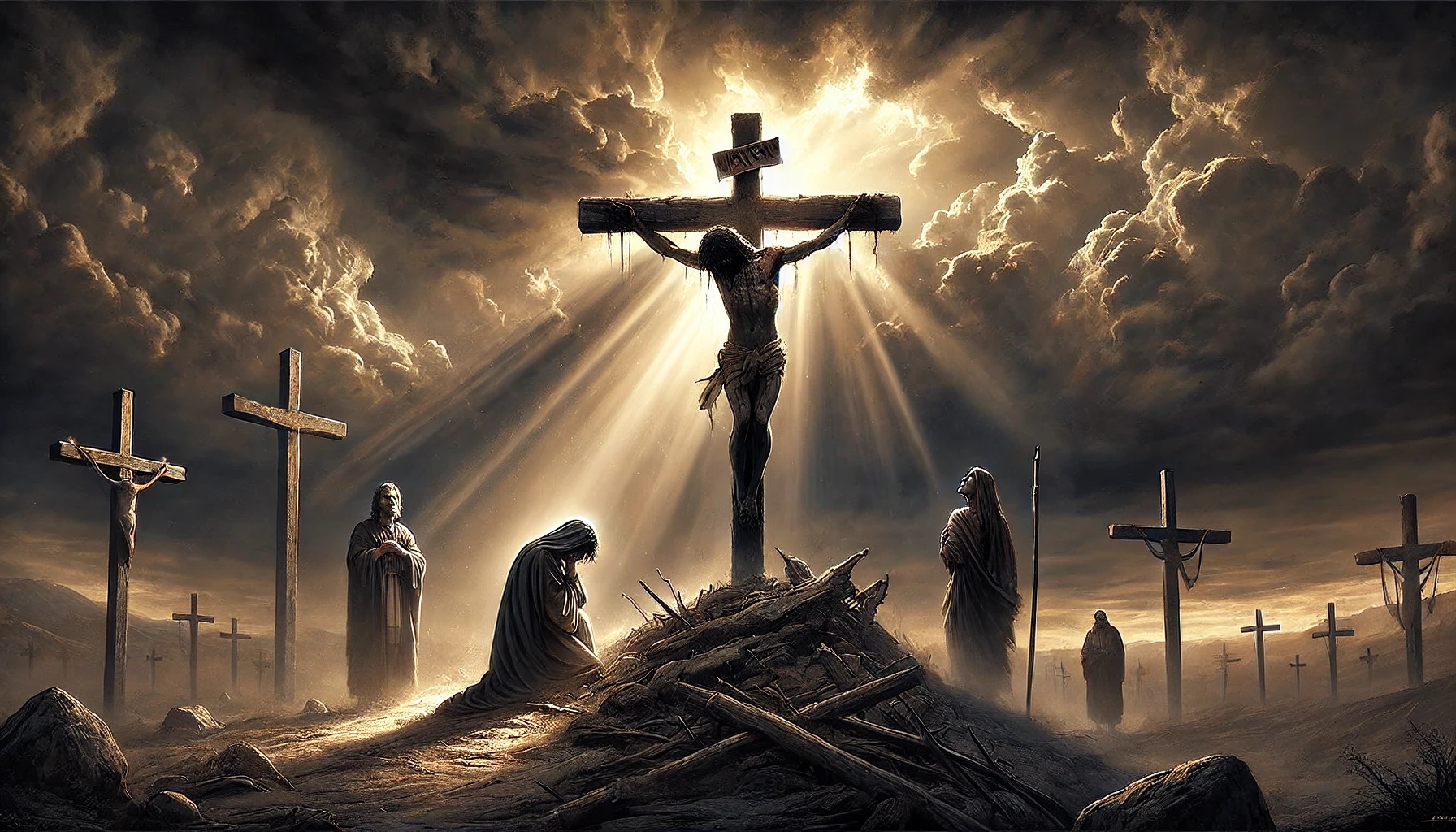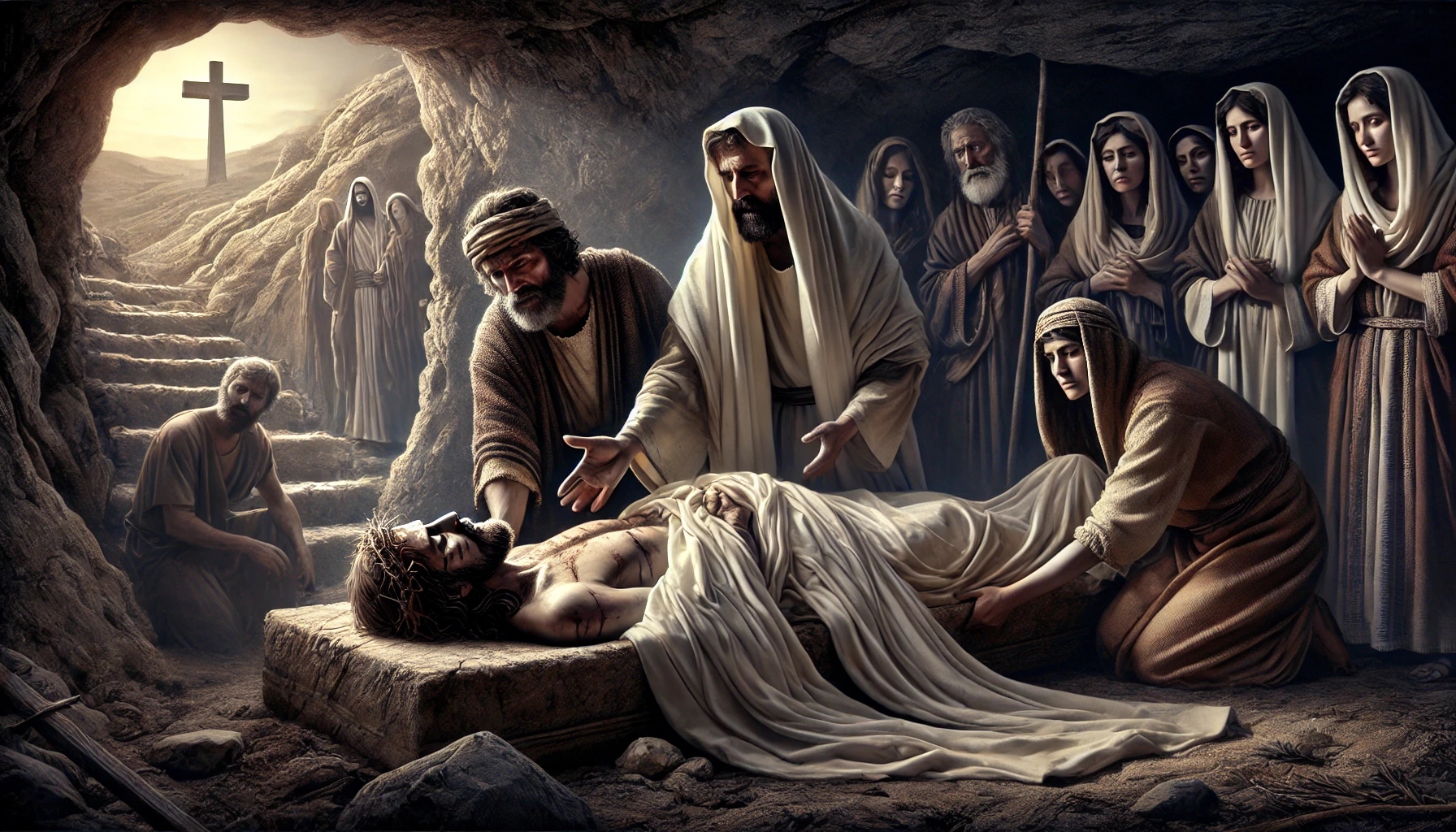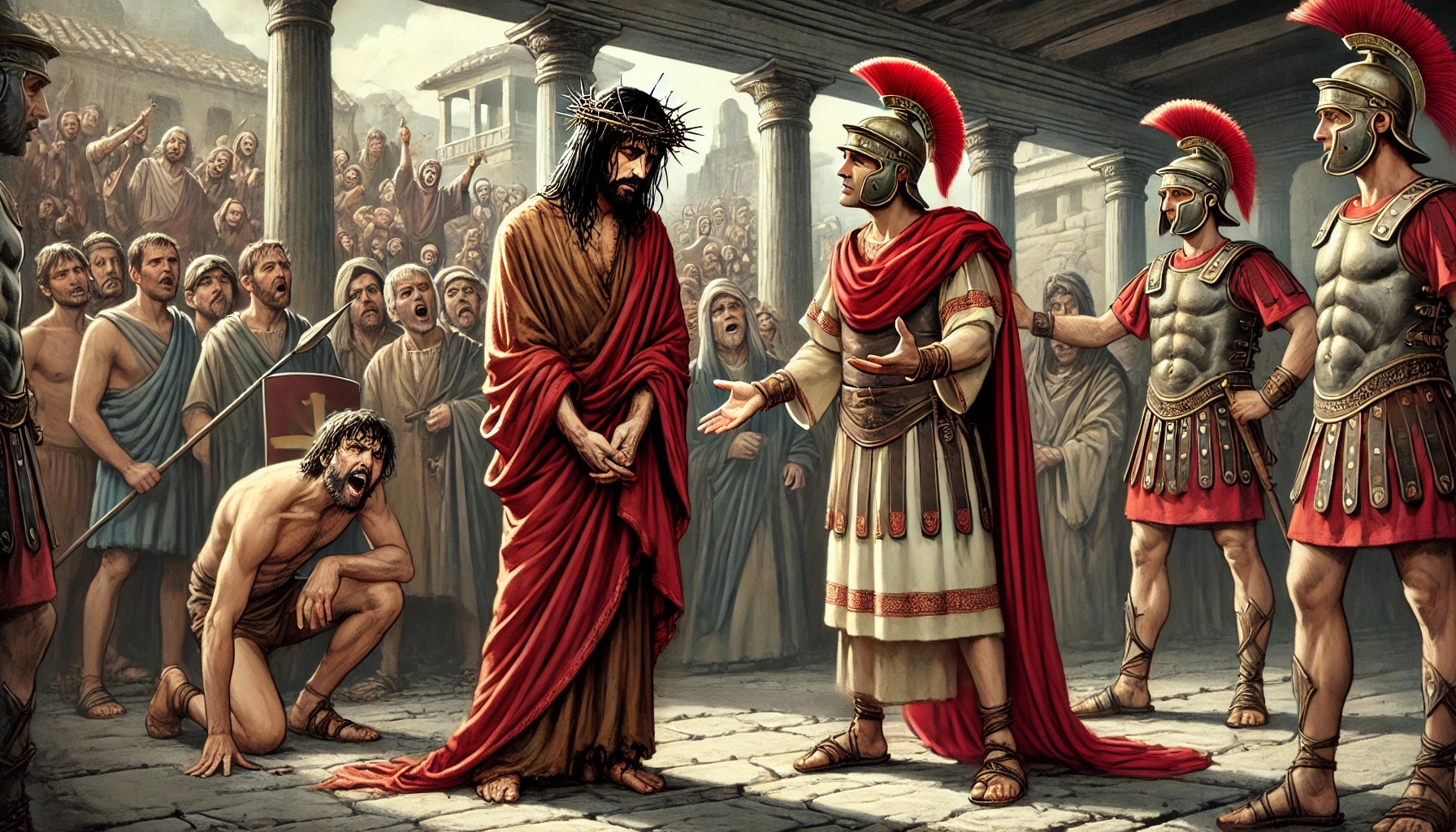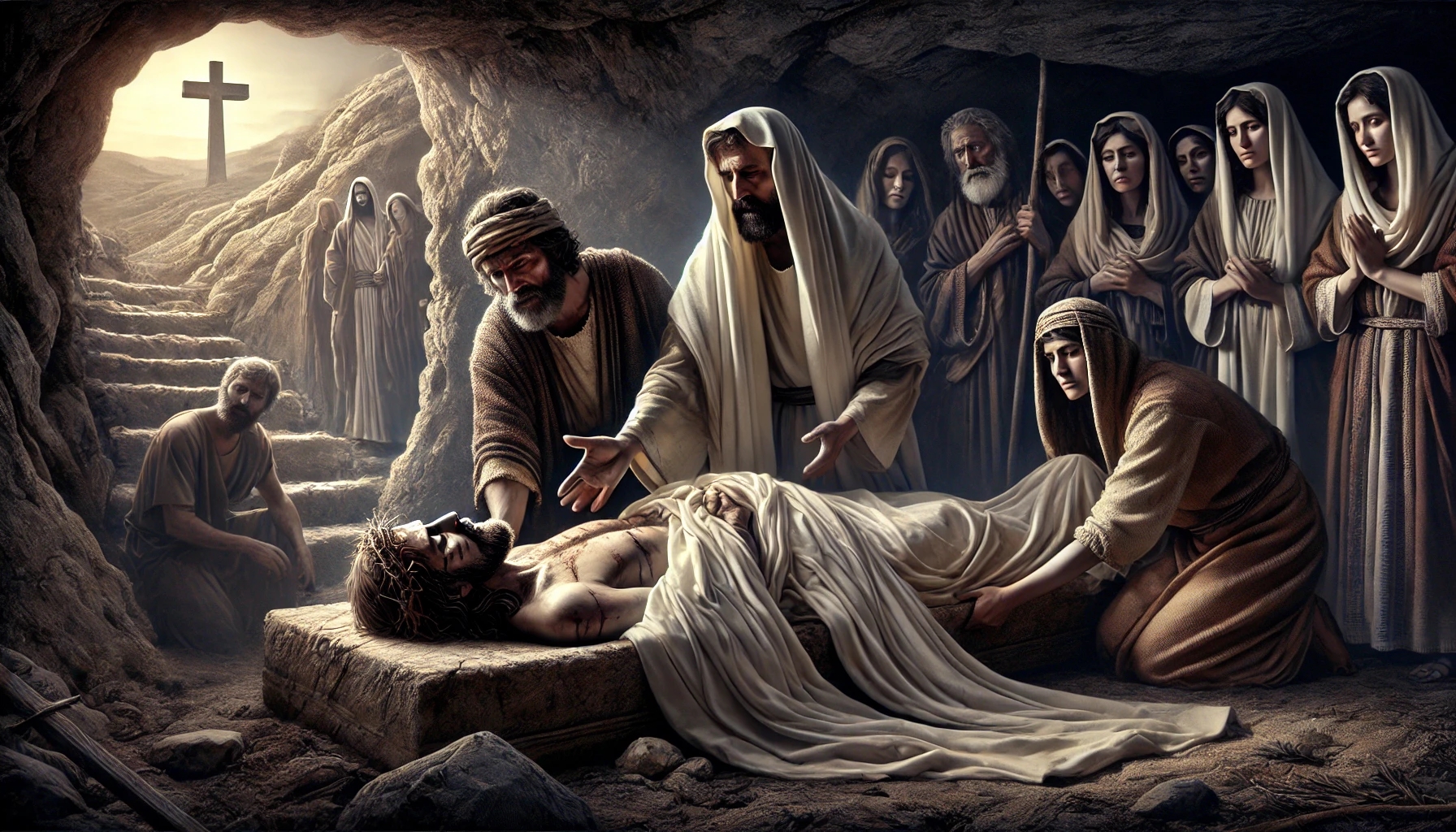December 18, 2024
DAILY BIBLE READING – 1 Corinthians Chapter 8
1 Now as touching things offered unto idols, we know that we all have knowledge. Knowledge puffeth up, but charity edifieth.
2 And if any man think that he knoweth any thing, he knoweth nothing yet as he ought to know.
3 But if any man love God, the same is known of him.
4 As concerning therefore the eating of those things that are offered in sacrifice unto idols, we know that an idol is nothing in the world, and that there is none other God but one.
5 For though there be that are called gods, whether in heaven or in earth, (as there be gods many, and lords many,)
6 But to us there is but one God, the Father, of whom are all things, and we in him; and one Lord Jesus Christ, by whom are all things, and we by him.
7 Howbeit there is not in every man that knowledge: for some with conscience of the idol unto this hour eat it as a thing offered unto an idol; and their conscience being weak is defiled.
8 But meat commendeth us not to God: for neither, if we eat, are we the better; neither, if we eat not, are we the worse.
9 But take heed lest by any means this liberty of yours become a stumblingblock to them that are weak.
10 For if any man see thee which hast knowledge sit at meat in the idol’s temple, shall not the conscience of him which is weak be emboldened to eat those things which are offered to idols;
11 And through thy knowledge shall the weak brother perish, for whom Christ died?
12 But when ye sin so against the brethren, and wound their weak conscience, ye sin against Christ.
13 Wherefore, if meat make my brother to offend, I will eat no flesh while the world standeth, lest I make my brother to offend.
King James Version. Public Domain
Commentary
Introduction
1 Corinthians Chapter 8 addresses an important topic that concerns Christian freedom and responsibility within the congregation: eating meat dedicated to idol sacrifices. Paul responds to the Corinthians’ questions and teaches that love and consideration for the consciences of weaker believers should be the foremost principles in handling such matters. The Apostle reminds us that knowledge alone is not sufficient but must be guided by love to foster faith and community.
Commentary
1. Knowledge and Love (Verses 1–3)
Paul begins by stating that knowledge alone “exalts,” while love builds up. Knowledge without love can foster pride and arrogance, whereas love shows consideration and care. Those who love God are known by Him, and this relationship with God should determine their behavior toward others. The emphasis is on love as the fundamental principle of Christian freedom.
2. An Idol is Nothing (Verses 4–6)
Paul explains that there is only one God, the Father, and one Lord, Jesus Christ. For believers, an idol is meaningless because it possesses no real power. This realization grants believers freedom, but it is not equally strong in everyone. Some have a sensitive conscience and could be confused or hurt by the freedom of others.
3. Responsibility Toward the Weak (Verses 7–13)
Not all Christians possess the same level of knowledge and faith strength. Some believers might interpret eating idol meat as participation in idol worship and thus waver in their faith. Paul warns that the freedom of the strong must not lead to harm for weaker brethren in faith. Whoever hurts a brother’s weak conscience sins against Christ himself. Out of love for the brother, Paul willingly gives up his freedom if it could endanger another. His guiding principle is love and consideration for others.
Summary
1 Corinthians Chapter 8 teaches that Christian freedom must be accompanied by love and responsibility. While the knowledge of the insignificance of idols grants believers freedom, Paul emphasizes that consideration for the weak conscience of others takes precedence. Love should guide actions so that the community is strengthened in faith and no one is harmed. The central message is that true freedom in Christ is not selfish but is characterized by selflessness and care for others.
![]()
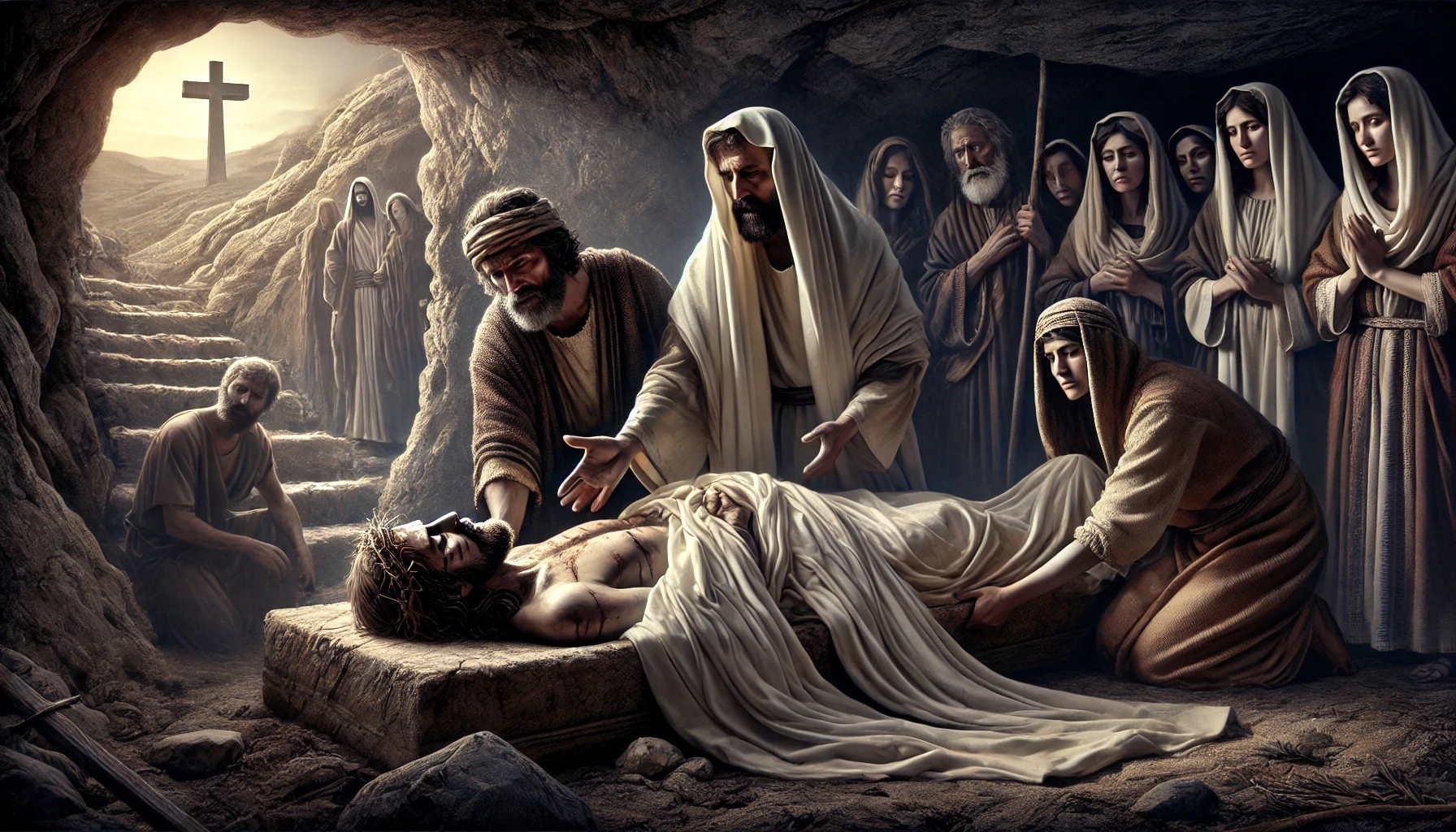
WEEKLY SPIRIT OF PROPHECY READING – Ellen White | The Desire of Ages
Chapter 80—In Joseph’s Tomb
Read online here
Commentary
Introduction:
Chapter 80 describes the final hours of Good Friday and the Sabbath, during which Jesus rests in the tomb after His crucifixion. This section highlights the significance of Jesus’ death and the rest in the tomb in relation to creation and redemption. At the same time, it establishes the symbolic connection between Jesus’ sacrificial death and the Sabbath rest. The chapter paints a profound picture of human sorrow, divine providence, and the priests’ efforts to suppress the memory of Jesus.
Commentary:
Jesus’ Rest in the Tomb and Its Significance Jesus’
Sabbath rest in the tomb mirrors God’s rest after creation. While creation was completed on the seventh day, Jesus’ rest symbolizes the completion of the redemptive work. This connection demonstrates that the cross is not only a place of suffering but also of triumph over sin. The Sabbath becomes a day of hope, pointing to the restoration of creation and eternal life.
Testimonies and Confessions After the Crucifixion
The words of the Roman centurion and the conversion of many spectators of the crucifixion serve as evidence that Jesus’ life and death had transformative power. The faith of Joseph of Arimathea and Nicodemus is highlighted in this chapter, as they courageously advocate for Jesus’ dignified burial despite their previous hesitations. This shows that Jesus’ death also moves hidden believers to take action.
The Priests’ Uneasy Conscience
Despite their apparent triumph, the priests are plagued by fear and doubt. Their efforts to seal and guard Jesus’ tomb reflect their uncertainty. Their attempt to prevent Jesus’ resurrection ultimately fulfills God’s plan and provides stronger evidence of His divinity.
The Testimony of Creation
Nature itself testifies to Jesus’ divinity: the darkness during the crucifixion, the earthquake, and the torn temple veil. These events underscore the significance of Jesus’ death and His connection to creation and the plan of redemption.
Summary:
Chapter 80 emphasizes the significance of Jesus’ rest in the tomb as a symbol of completed redemption and connects it with the Sabbath rest of creation. While Jesus’ enemies continue to try to suppress His influence, their actions ultimately provide evidence of His divinity. The chapter shows how Jesus’ death moves not only His disciples but also other witnesses of His crucifixion. The Sabbath following the crucifixion becomes a day of silence and reflection, harboring hope for the resurrection. The triumph of God over human plans and the glorification of His name are central themes of this chapter.
Source: https://fulfilleddesire.net/18-11-2024-1-corinthians-chapter-8-believe-his-prophets/

